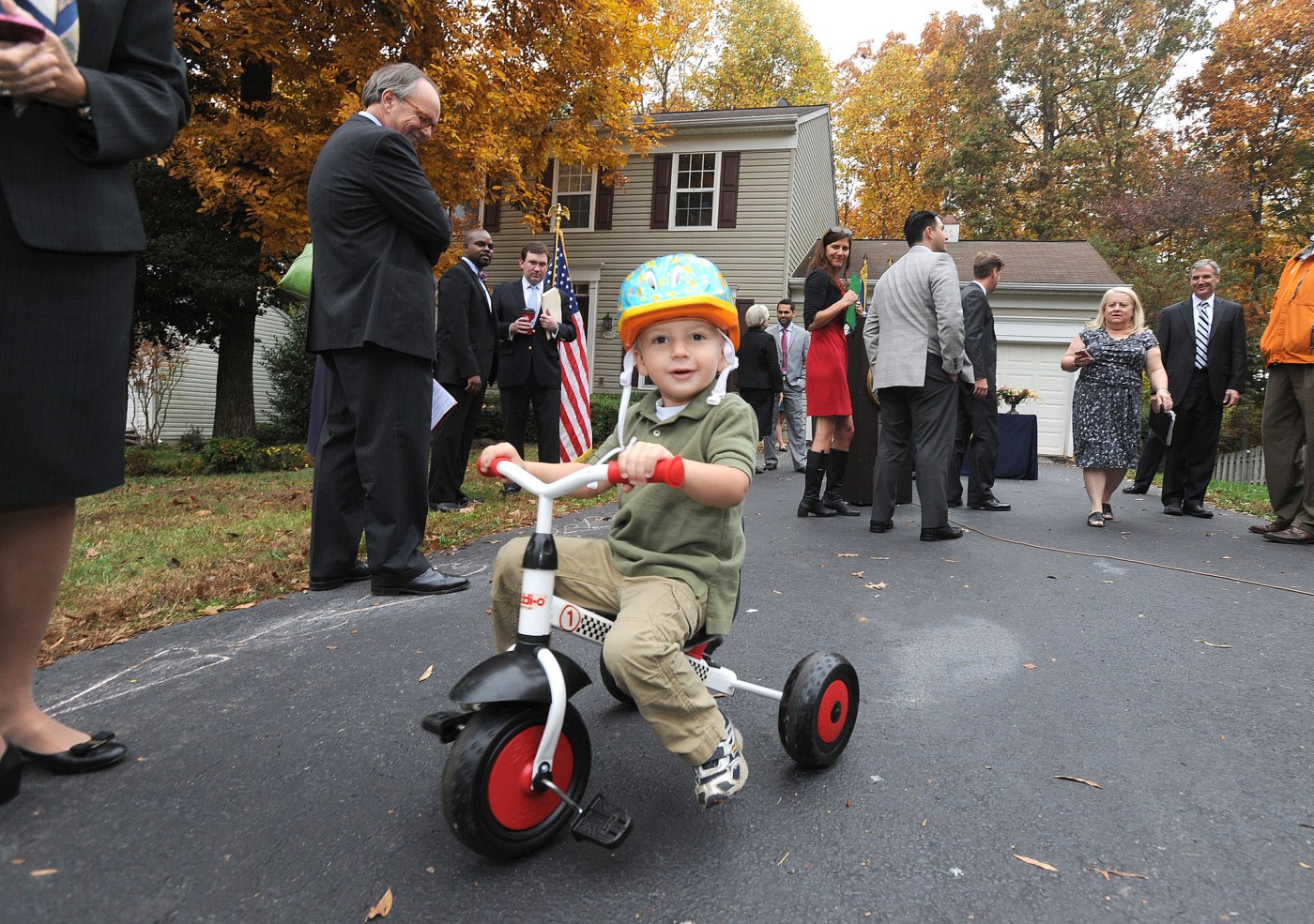The VA home loan and other housing programs help Veterans, Servicemembers and surviving spouses purchase, build, adapt and renovate homes. One of the most commonly used loans is the VA Purchase Loan, which specifically allows qualified Veterans to purchase a home without many of the requirements of traditional mortgages—there’s no down payment, no private mortgage insurance, competitive interest rates and easier qualifications.
The VA Purchase Loan isn’t a loan offered by VA itself. Rather, the loans are provided through private, approved lenders. The process for purchasing an existing home or new construction is fairly straightforward, including finding a VA-approved lender, getting a Certificate of Eligibility and, of course, selecting and purchasing the home.
But some people aren’t satisfied with the existing homes in the area in which they wish to live, while others have always dreamed of building their own homes. The VA home loan, traditionally used for mortgages, can also be used to build a new home—but it can be a tricky road to construction.
The Hurdles of New Construction and VA Home Loans
There are two types of loans in the financing of a new home: the construction loan and the residential mortgage loan. Many institutions offer construction-to-permanent financing, which rolls the construction loan over into the mortgage and requires only one closing.
VA allows the home loan guarantee to be used for construction loans. However, it is not common for VA-approved lenders to finance the construction loan with the same terms, as the lender takes on more risk for a construction loan. During the construction loan phase, the lender provides the funds for as the builders complete specified construction milestones. Many prospective homeowners looking to use the VA home loan guarantee on a construction loan find that they are asked to provide a down payment or agree to additional terms for the loan.
The type of home you want to build may also make things more complicated. Custom homes and homes built from purchased house plans may be more difficult to finance than modular homes, and manufactured homes are seen as high risk.
Can It Be Done?
Some VA-approved lenders will assist with a certain type of construction-to-permanent loan. In this type of construction-to-permanent loan, the construction is first financed by the homeowner, often through a builder; this is later refinanced into a VA home loan with the help of the VA lender. Before this, many Servicemembers use the Certificate of Eligibility required for the VA home loan to negotiate a construction loan.
That is not to say that there are not VA lenders that will help with a construction loan—there are, but they can be difficult to locate. For hopeful homeowners that are set on a custom build and can’t find an approved lender to finance a construction loan under the VA home loan guarantee, it is possible to find a builder that offers special programs or discounts for Veterans.
Building Accessible Housing
VA’s housing programs are not limited to home loans. Disabled Veterans may be able to partially fund the construction of an adapted home, such as a wheelchair accessible home, with the help of a Specially Adapted Housing (SAH) Grant. The Special Housing Adaptation (SHA) Grant is used to adapt or purchase existing homes.
Through the SAH Grant, veterans can obtain funds up to the current maximum of $70,465 to construct a home adapted to their needs. Many of these disabled Veterans have spent a long time in VA medical centers, away from their homes—homes that may not be suitable for them once they return.
Using the SAH grant to help construct a home allows disabled Veterans to live comfortably and independently after a severe injury. For those looking to construct an accessible home, wheelchair accessible house plans are available, many of which allow modification to specific needs. The Plan Collection, which offers a selection of adaptable house plans, has donated a percentage of its sales to the Fisher House Foundation, a not-for-profit organization that provides safe and free temporary lodging while service members or Veterans receive care at military or VA medical centers.
Building a new home tailored is the dream of many Americans, including service members and Veterans. With the help of the VA home loan guarantee or grant, it can become a reality.
This article was submitted by by The Plan Collection
Topics in this story
More Stories
Soldiers' Angels volunteers provide compassion and dedication to service members, Veterans, caregivers and survivors.
Veterans are nearly three times more likely to own a franchise compared to non-Veterans.
The Social Security Administration is hoping to make applying for Supplemental Security Income (SSI) a whole lot easier, announcing it will start offering online, streamlined applications for some applicants.







Paul Phil: Sure wish I could see what you’re attempting to say.. I am involved in the early process of using the VA mortgage guarantee system for a home purchase. So far, so good..
I wrote you a detailed report on why to avoid the VA at all costs but it said, could not read the “Capcha Code” which is 4 letters and a snap. Instead of giving me a chance to put it back in the website ate my E-Mail. This website is an example of government efficiency. I’m sure if I said VA loans were just wonderful, it would have posted. Short story, do not get back into any government maze. It is not a benefit, it is a recruiting tool and banks and RE agents won’t touch them.
I would like to Buy a house in Glenwood Utah very nice older home single level aprox 1 acer
$ 125.000